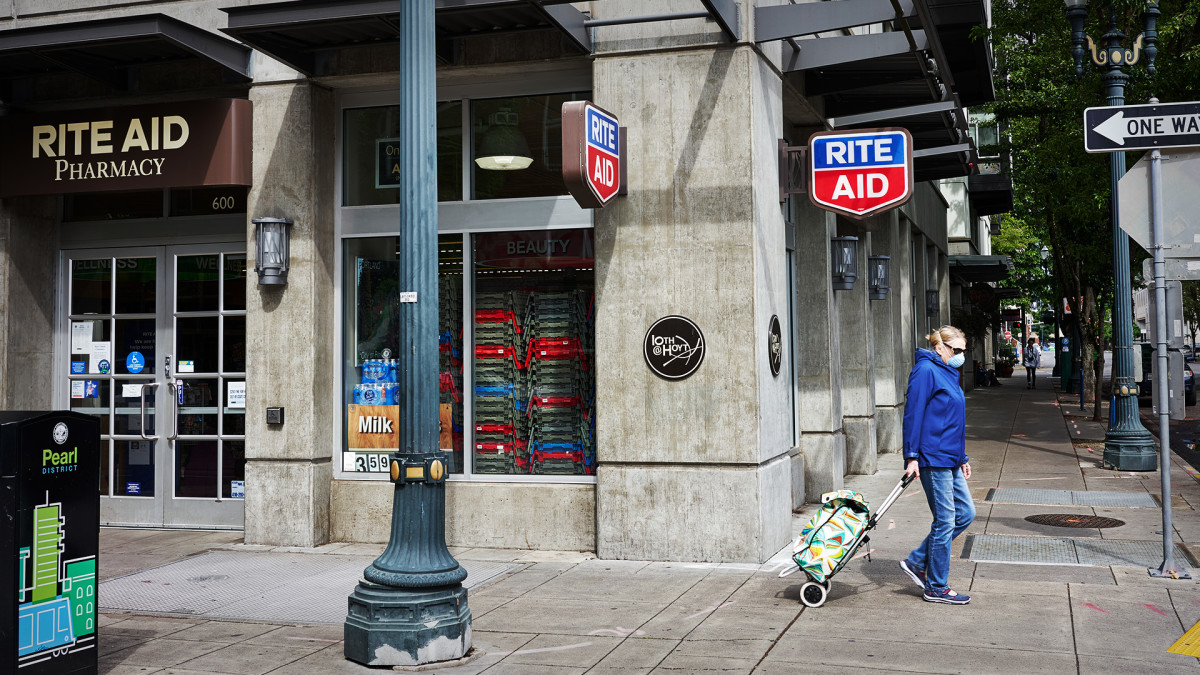
A Chapter 11 bankruptcy filing enables a struggling company a chance to stop the bleeding.
It's a chance to renegotiate the terms of its loans, bargain with vendors over past-due bills and talk with landlords about leases. Whether a company survives the process depends on the willingness of its partners to make a deal.
And that in turn generally depends upon whether that collection of lenders, vendors and landlords will be better off taking less money and keeping the company alive or letting it die.
Related: Bankrupt, liquidated retailer making a massive comeback
Vendors generally want their retail partners to survive. Assuming there's a plan to pay them for past and future shipments, they will generally be as flexible as possible.
Banks and landlords, however, are often less forgiving.
In the case of banks, money has gotten more expensive and they often have a prime position in the pecking order when it comes to claims on a company's assets. Sometimes, if a new funder can't be found, the original lender may figure that letting the company die will be the best path toward getting at least some of its money back.
Landlords face a different equation. They must factor in whether they're going to make more money by finding a new tenant or by offering the company in Chapter 11 better terms to help them stay.
It's a complicated puzzle that Rite Aid has been trying to solve under its Chapter 11 filing. The company has been closing stores and working with its vendors to find a viable path forward.
Now, a New Jersey bankruptcy judge has set a date when he will decide on the company's reorganization.

Image source: Shutterstock
Rite Aid has a real estate problem
When Rite Aid filed for Chapter 11 protection, the chain cited unprofitable stores as one of the biggest drags on its profitability. To help fix that issue, the company hired A&G Real Estate to sell some of its leases.
"As the company's restructuring process moves forward in the weeks ahead, A&G will market additional leases, with the total number depending on the outcome of ongoing negotiations between A&G and Rite Aid landlords," the company said.
"The quickly moving plan centers on exiting certain locations to ensure optimal performance of Rite Aid's real estate footprint."
Rite Aid Chief Executive Jeffrey Stein, who took the helm when the company filed Chapter 11 bankruptcy, said in court documents that Rite Aid had $80 million in "dead rent" costs annually that it could not shed without Chapter 11 protection.
"Those stores challenge the company’s earnings profile, turnaround initiatives, and free cash flow,” he said.
The company has been working on shedding those leases and it now faces hearings on Feb. 29 and March 1 during which U.S. Bankruptcy Judge Michael Kaplan in New Jersey will decide its fate.
Rite Aid now has a real deadline
In addition to selling leases, Rite Aid has been taking bids for its Elixir pharmacy benefits and discount program, while also negotiating with lenders over its $4 billion in debt.
The company has pushed the court to act faster while its unsecured lenders want the process extended so they have more time to see how they will be treated, Law 360 reported.
Rite Aid has set Dec. 14 as the bidding deadline for Elixir and the other assets it plans to sell to raise cash.
The retailer's counsel, Aparna Yenamandra, actually wanted the judge to make his decision on the plan two weeks earlier.
"She said the extra two weeks would be uncomfortably close to the plan deadline in its debtor-in-possession financing agreement and the Bankruptcy Code-mandated May deadline for accepting and rejecting leases, saying if its plan is rejected, it would need time to negotiate with its approximately 1,800 landlords for an extension," according to the website.
In picking the hearing date, Kaplan essentially met in the middle between the timetable the company and its secured creditors wanted and the one asked for by the unsecured creditors.
If the judge does not approve the plan, the company would face significant risk of having to move from Chapter 11 to a Chapter 7 liquidation.
Action Alerts PLUS offers expert portfolio guidance to help you make informed investing decisions. Sign up now.







